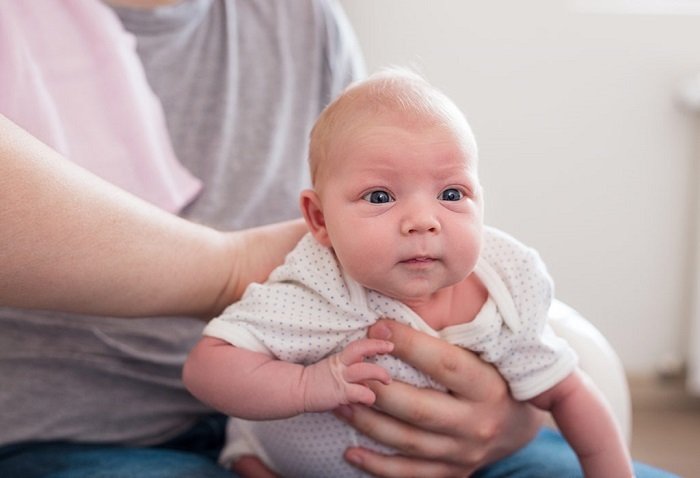
Do you ever wish your baby could tell you exactly what was wrong? Endless hours of crying and fussing can even drive veteran parents up the wall.
Sometimes the answer is as simple as an unseen boo-boo or overstimulation. However, one of the most common reasons a baby cries because they have yet to be burped!
We have all seen parents with their child draped over their shoulder, patting and patting, willing the crying away.
But is that the best way to settle a baby’s tummy? We often do not give a second thought to the ways we are taught to do something, including tried and true back-patting. If you are considering switching up your burping technique, we have investigated the best way to burp an infant.
The 5 Reasons Why Babies Need Help Passing Gas
Babies go through an amazing amount of development after being born, but especially during the first year of life. At such a young age, they have underdeveloped sphincters that make it difficult for them to regulate the gases that get trapped inside their bodies.
When babies get all this air stuck with nowhere to go, the air trapped inside can cause a lot of discomfort and a feeling of fullness that babies do not like. At a loss of how to stop the pain, babies will cry until their faces turn purple!
In fact, burping is recommended before, during, and after feeding because air can be trapped in their tummies in a variety of ways.
1. How Air is Trapped in a Baby’s Belly
Ever wonder why your baby sometimes cries for no reason? You may be overlooking how much air is trapped in their system. Babies can accumulate air by:
2. Digestion of Certain Foods
Did you know the food a mother eats can transfer into the breast milk she gives her baby? If you are a mother and you are eating a lot of carbohydrates (we can’t blame you—babies are a full-time job!) or things like broccoli, chickpeas, beans, or other usual farty suspects, this can transfer to your baby. The result is a build-up of gas that means you may have to burp your baby a little more often.
3. Swallowing Too Much Air During Crying
Sometimes babies start a vicious cycle of intense crying, swallowing a lot of air while they cry, and then crying more because more air means more gas build-up in their poor bellies.
4. Food Intolerance
You may want to compare baby formulas or test your baby for certain allergies, even if you are breastfeeding. Your baby may have temporary sensitivities to foods, most commonly dairy.
Only about 2-3% of babies have a milk intolerance, and most grow it out, but it is still a possibility that you should look into if your baby often cries and fusses after feeding.
5. Improper Feeding Technique
Try adjusting your usual breastfeeding position and see if your baby fusses less after eating. Some mothers have success burping their baby when they switch between breasts or positioning their baby so a proper latch is achieved to prevent too much air from interfering in feeding.
The Best Way to Burp an Infant
So what are the most effective ways to burp your baby? There are two tried and true positions that will get the job done for the most part.
Before you do anything, make sure you have a “burp cloth” handy! Babies don’t have as much control over their own burping, as previously mentioned, and that means what they burp up is just as unpredictable. A burp cloth held close by your baby’s face and pressed gently to pick up any spit-up should be just fine.
The first position to burp your baby in is while the child is sitting on your lap. Gently place them on your lap and support the front of the body and head with your hand and arm. Then, with the other hand, gently pat your baby’s back to encourage the gas to rise up and out. This also makes it easier to catch any surprises with the baby cloth!
The second position is probably the most common: Burping your child over your shoulder. Make sure the baby’s head is supported while you gently pat the back and wait for the burp to come up.
If your baby is very, very young and not used to burping yet, you may want to let him or her rest between burping sessions to avoid fussiness. Switching between these two positions and burping from different angles may also help bring up gas when solely doing one of them is not enough.
Reminders
Spit-up, vomiting, and passing gas is normal for young babies due to their immature digestive systems. However, if your child is vomiting extreme amounts of their food or even projectile vomiting, you should contact your pediatrician.
Similarly, if burping does not seem to be enough to relieve an upset baby of gas, make sure your diet is not the culprit if you are breastfeeding, and that your baby is not sensitive to the formula if you use a bottle.
Final Thoughts
Until your child is about four to six months old, burping and other techniques to relieve your baby’s gas should be the norm! Every child is different and may take less or more time to start passing gas on their own, but until they can confidently toot on their own, you have to be the wind beneath their wings. Happy burping!

